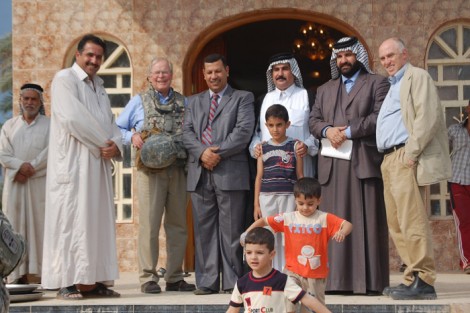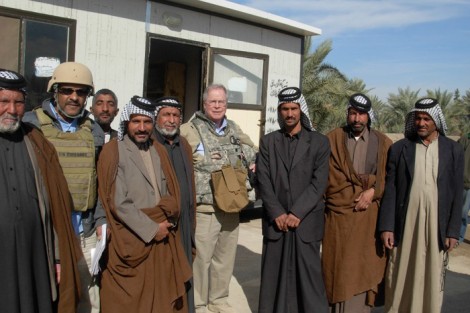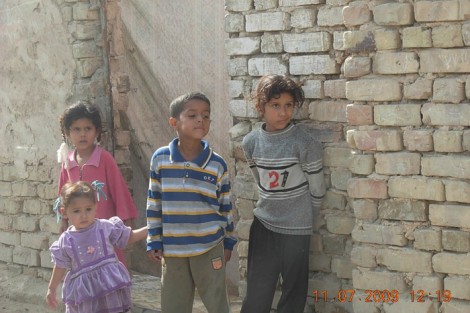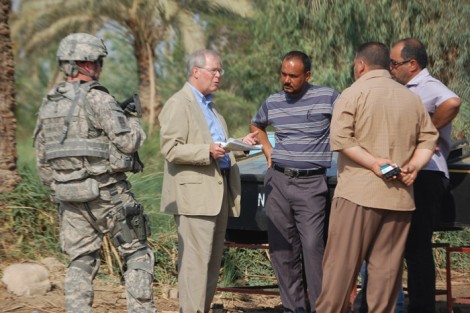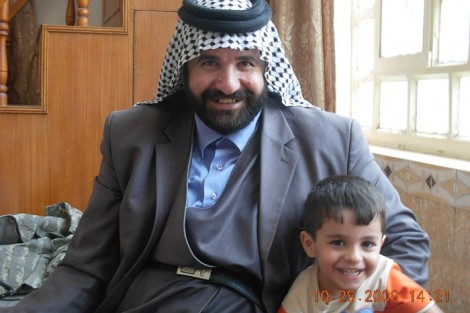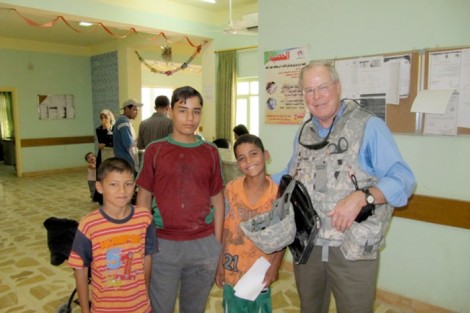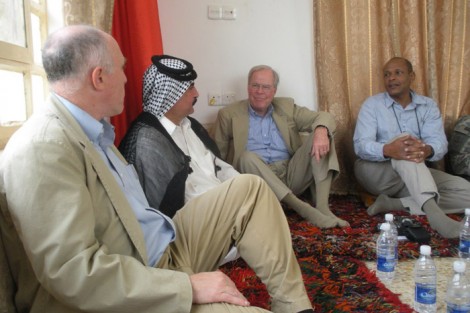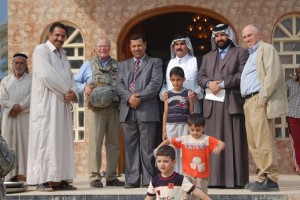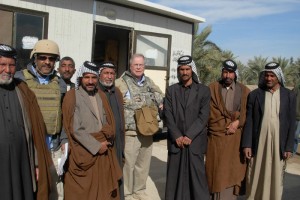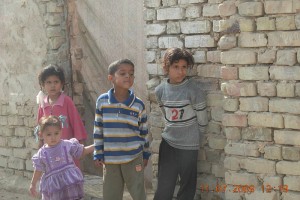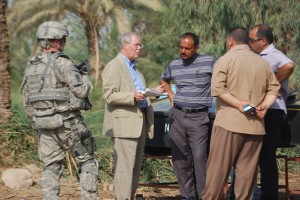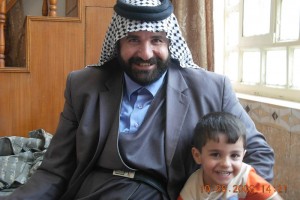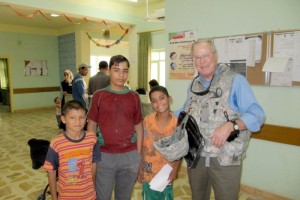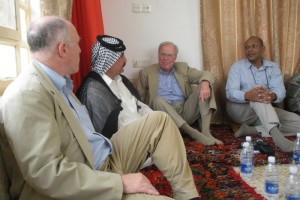By Kevin Gray
The former deputy national security adviser for Vice President George H.W. Bush and a Vietnam veteran, Samuel J. Watson ’61 is now serving in Diwaniyah Province, Iraq, as a State Department senior public health adviser.

Samuel Watson '61
Watson advises a Provincial Reconstruction Team (PRT). He maintains ties with the province’s health officials and helps lay the groundwork for major improvements in how health issues are addressed.
“I focus on managing health care and strategic planning, not on direct care of people,” he explains. “Our PRT focuses on building capacity in the Iraqi system, and helping them learn new models for management, planning, and training so they can become sovereign, secure, and safe, and maintain long-term friendly relations with the United States.”
There are 26 PRTs and 11 health advisers in Iraq. Watson says a typical PRT has specialists from many disciplines, such as agriculture, law, engineering, economics, business development, governance, political action, and sometimes, health.
Diwaniyah Province is dusty, hot, and dry in summer, but wet, cold, and muddy in the winter, says Watson. The PRT office is an old Iraqi army tank repair building at Camp Echo. “Dust gets into everything in the building and our housing,” he explains, but adds that Internet access is fair, food in the Army mess hall is good, and that living quarters—a steel shipping container with a bath, air conditioner, and window—are good.
To operate safely and effectively requires keen awareness. Watson says that when he and his team are out in a village or traveling on the road, they are on guard because they know that a peaceful scene can turn suddenly perilous.
Going out to meet his Iraqi counterparts and citizens requires a security escort from the PRT’s co-located military unit. The typical “movement” team is 15 to 20 soldiers, four to five up-armored Humvees, and careful route planning based on intelligence research. As a result, many of Watson’s contacts prefer to meet in his office. For example, he has a standing Sunday meeting with a senior official to discuss health care planning, the Ministry’s five-year strategic plan and how to implement it in the province, and what is needed from the United States to successfully build a health care system there.
Still, he says, the province, as a whole, is relatively safe.
After leaving Lafayette as a commissioned Second Lieutenant of Infantry, Watson served eight years in the infantry airborne and ranger units in the United States and two years in infantry units in Vietnam, including the A Shau Valley Campaign of 1969 and Hamburger Hill with the 101st Airborne Division.
While still in the Army, Watson taught strategy and arms control, then joined the delegations negotiating SALT II and START, and was a member of the Reagan-Bush Presidential Transition Team at the CIA.
Watson’s most memorable experiences from this period include planning George H.W. Bush’s foreign trips to Europe and Central America; working for Bush during many National Security Council meetings to free Afghanistan from the Soviets; seeing the U.S.S.R. fall and the end of the Cold War; and helping Nicaraguan Contras free their country and vote to establish a democracy.
After retiring from the Army as a colonel, Watson was associate professor of public health practice at the University of Pittsburgh’s Graduate School of Public Health, where he developed and taught a course on bioterrorism. When he heard about the opportunity to join the State Department for a PRT, he applied and was accepted.
Watson has great confidence in the Iraqis with whom he works, calling them dedicated, motivated, and pleased to have a say in their destiny.
“The Iraqis are warm, friendly, gracious, and hospitable,” he says, noting that he is always invited to their home when he visits rural hamlets. “We visited a very small hamlet in January to look at what the government called a health clinic. The villagers said no American, not even a soldier, had ever been to their village…they brought chai, and we talked for an hour about health needs, politics, the upcoming elections, and agriculture. This area is the ‘Breadbasket of the Middle East,’ so rice, wheat, and barley are always on their minds.”
Even though Iraq is thought of by some to be strictly a developing country, Watson reports that there is more of a contrast.
“I see beautiful health clinics that meet any Western standard, and I see health clinics in rural areas that are unsanitary, have no drainage so medical waste and water goes into buckets under sinks,” he describes. “But, they have hope that this will change, and modern health care will be integrated into their lives.”
The local citizens have been receptive to the work of the U.S. contingent. For example, a senior member of the Provincial Council gave Watson 25 kilograms of amber rice, known as ambe mohara, a special aromatic type grown in Diwaniyah Province and rarely exported.
The gift demonstrates an appreciation for what Watson and his colleagues are offering the people of Iraq: knowledge, capability, confidence, and hope.
Watson recently got word that his work in Iraq has been extended until November 2010. “Believing in America is not sentimental, but real. I believe that doing what we can to help others around the world have a better life is our American mission and our role in the world.”

